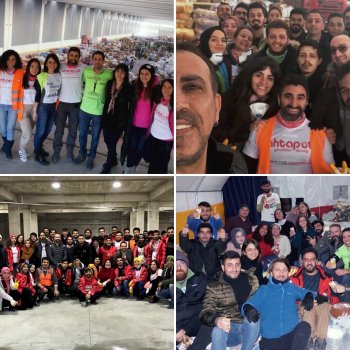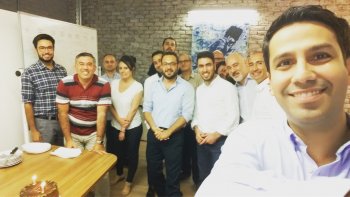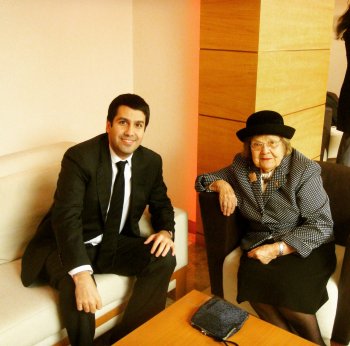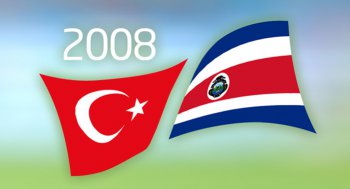Turkey finally gets access to 100% Local Solar Panels for energy independence!
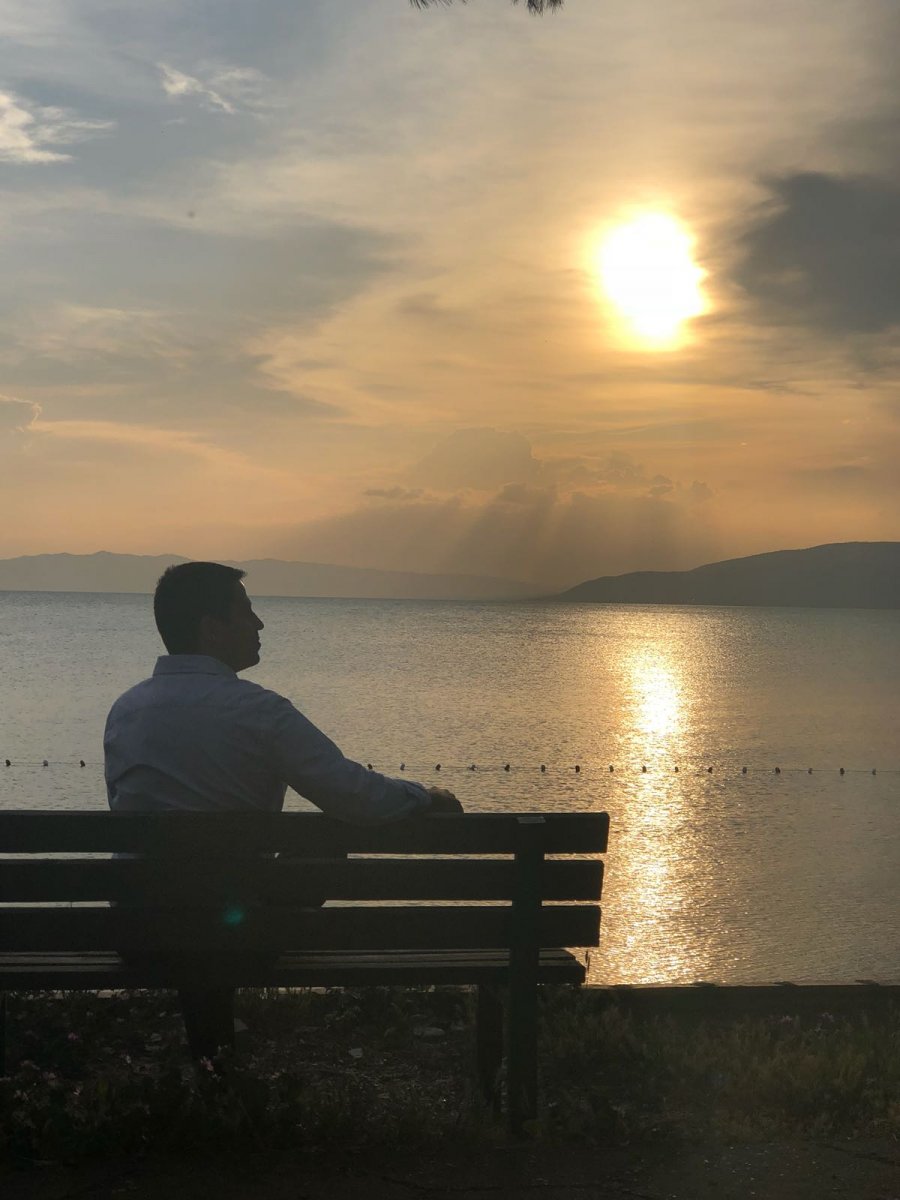
In April this year, we established our ‘100% local solar panels and free from energy dependence’ vision and under the “Project Based Initiative” we gained a $3.8 billion initiative which was formalised by a ceremony and made public via the newspapers. I will write about the stages we went through to get here and what will happen from here onwards and also explain the strategic importance of this project for Turkey.
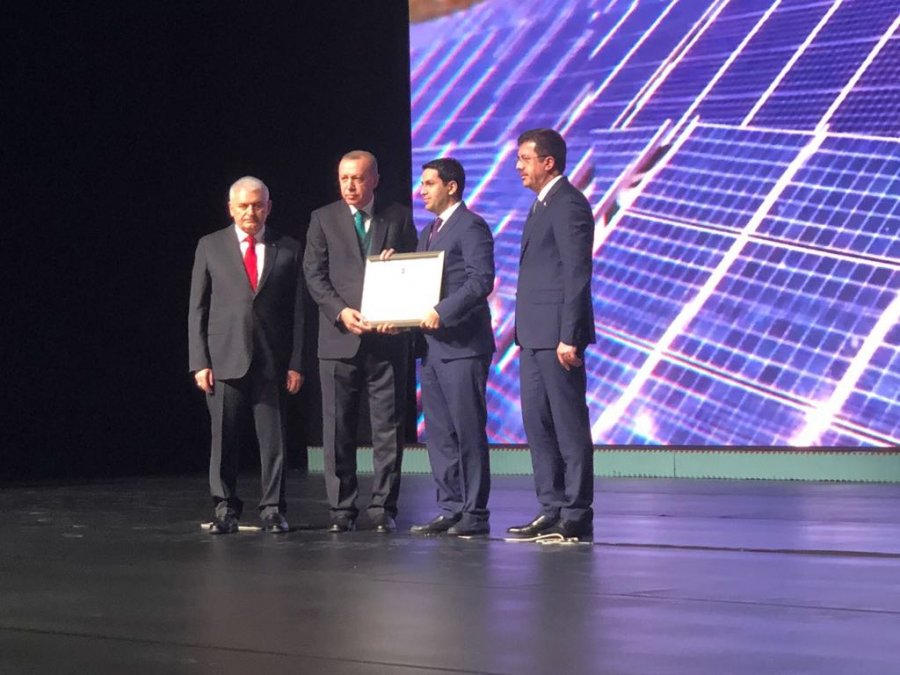
A photo taken at the ceremony where we were given our initiative certificates
I’d like to give a summary to those that haven’t read my articles regarding solar energy. After I left my family business with the money I borrowed from my father, I established my company (parabolic trough – direct steam generation) with CSP (Concentrating Solar Power) technology, which produced heat and steam from solar radiation, in which I sold to a foreign buyer 2 years later and straight after, established a PV company which produced electricity. I had previously written about my careers in solar energy. To remind you of these, I’d like to share them with you again:
http://www.serhansuzer.com/en/were-proud-of-our-story-of-progress-ekore
I had also written about our official ceremony in April:
http://serhansuzer.com/en/100-local-solar-panels-to-become-free-from-energy-dependence
In 2013-2014, I was working on developing long terms projects for our company EkoRe (Eko Renewable Energy), in which I named. After all the planning, 4 years ago, I decided on our direction and took the necessary actions: according to this, the essence of the PV sector is solar panels. Of course, inverters and other equipment which are the heart of the system are also very important. However, almost half of the investment of a solar energy central is formed with solar panels. Additionally, where electricity is produced is also formed with solar panels. Our country and the geography we are found in was in much need of a solar panel producing plant for its economic, ecologic and strategic aspects. We therefore, took all the necessary steps towards this…
Why Nigde Bor?
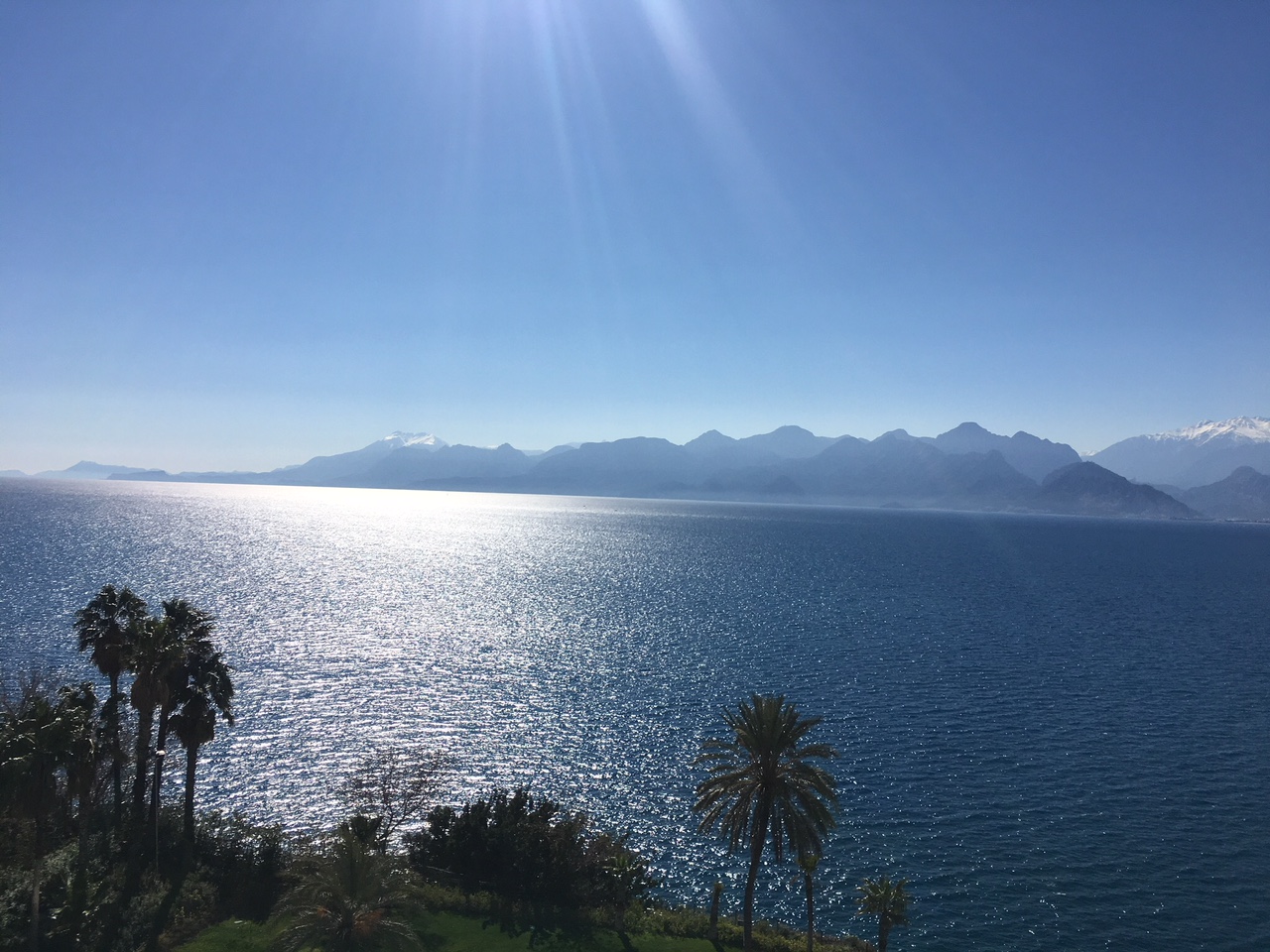
A sunrise and sunset is beautiful everywhere in the world. The region where this photo was taken is very important for our process. I will make another explanation soon.
Firstly, we had to decide the location of where we wanted to make this production. Thanks to the solar energy sector, I was able to travel to many provinces of Turkey and in the end decided on Nigde for strategic reasons. Actually, our spot in Nigde is Bor, which is its most important district. To be more specific, we chose Nigde Bor OSB (Industrial Park) as our place. I will remind you of the reasons once again;
- Nigde is located in the centre of Turkey’s Sun Belt. Logistically, it’s the correct place to reach and access projects.
- Its 2 hours away from the port of Mersin. Our aim is to bring a rail system to the OSB to load containers for exportation in a quick and practical way and send off to the marina.
- There are plans for an airport to be built across the road to the OSB. I assume there will be alot more activity in the area now with our plans. Nigde will become the centre of the world’s solar energy sector and with this, there will be alot of incoming traffic. This therefore will help support the idea of building and erecting the airport.
- There are plans for a YEKA (Renewable Energy Resource Area) to be built on the land across the road. We will also decide whether to be part of the tender for YEKA in the future.
- The authorities and bureaucrats in public offices in Nigde have helped support us which has helped us settle and make life easier for us. This is one of the reasons we are investing in that area.
- A solar cell laboratory being built in the old Nigde University which has been renamed to Omer Halisemir University (established by ODTU University professors) was a huge surprise to us. Whether it be this university and ARGE or its human resources, it is a good reason for our partnership. If we can be a benefit to the university or the the public, then why not.
- Nigde being a trustworthy and safe place.
- The area is able to meet our raw materials needs.
- The fact that the Nigde Bor OSB’s foundation has the capacity to meet the requirements of this kind of investment. Additionally, the OSB found in the Bor district has the land and capacity to grow.
- The support of the community to this investment.
Afterwards, we had to decide on the technology. And the first thing that needs to be decided on with technology is which film shall we choose to invest in (thin film or crystalline). The option that everyone chose to be the technology of the future and the most productive which will override the crystal technology was the thin film. However, quite the opposite, in the last 3 years, crystal technology saw an increase in production values and made significant differences regarding cost compared to the thin technology and therefore, this gap was made bigger. That’s why we focused on the crystal technology.
Which one were we going to start with in crystal technology? For those who don’t know much about the technical details, here is an insight; crystal technology saw a continued increase in productivity, first with polycrystaline (16-17% productivity), and then monocrystalline (18-19%) and after PERC monocystralline (20-21%) and finally, Heterojunction (22-23% monofacial and bifacial of over 25%). Of course with an increase in productivity, came an increase in cost. During the time where I was trying to decide on which crystal technology to use, all the energy sector shareholders came together for a YEKA meeting and afterwards, I made my decision. In July of 2016, the whole establishment of the energy sector were invited to a meeting to the Energy and Natural Source Ministry to discuss and consult information and further details about YEKA. This was an event where nearly 100 shareholders had joined, those in the production of PV, five companies who came to make formal declarations regarding this and the bureaucrats of the ministry who were seated at the table in the core of the room, and the remaining were professionals who were seated around them. I too was seated at the table in the core of the room, representing EkoRe who has previously made declarations and taken tangible steps towards this topic.
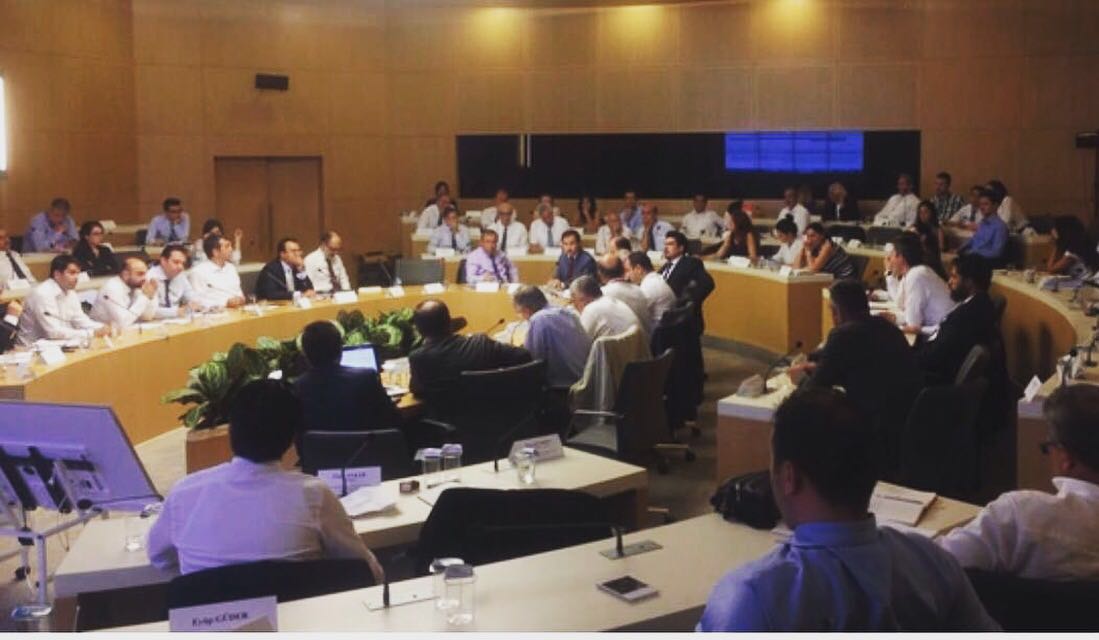
I would like to share this photo just so can you visualise the YEKA meeting. You can see me sitting at the at the far left on the core table.
Raising the bar to the highest level
Naturally, I was in the group that made the most comments and answered all the questions that day. I got really annoyed by the wrongful criticisms that were made towards us in this YEKA consultation meeting. For example “Even if the the 100MW plant that Mr Serhan declared comprised of all the processes, what difference would it have from the Chinese panels? What kind of benefit will this kind of investment have to the sector?” were the kind of things said, and when the veterans of this industry who I had much respect for joined in these conversations, I made my decision: we had to steps on the gears. Infact, besides stepping on the gears, we had to increase the bar to a level no one else could easily reach.
After I left the YEKA meeting that day (you can find the detailed article I wrote about this at this link http://www.serhansuzer.com/en/the-massive-yeka-tender-and-ekore-expertise), we went to Nigde with our Swiss-German technology vendor. While we were discussing the details of the YEKA meeting amongst ourselves, I said “we want to apply whichever one of your technology which has the highest productivity” to the authorised manager of our technology vendor, to which they suggested the bifacial (double sided cell) which can exceed over 25% with the Heterojunction technology. We then put all our focus onto the Heterojunction option.
Now, I can give you the great news that we will be producing the PERC monocrystalline and heterojunction technology. Im not sure just yet which will one will be produced more than the other but what I know is that the heterojunction technology will weigh heavier more and more each day.
We completed all the technicalities regarding the technologies and investments with the experts and made our application. From what we have been told, we were the first ones to apply and be awarded for our “Project Based Initiative”. At first our initiative was announced as 2.2 billion but after a few alterations and rate differences, this figure was confirmed as 3.8 billion.
Here is the official newspaper registration of our initiative on the 23rd of June, 2018:
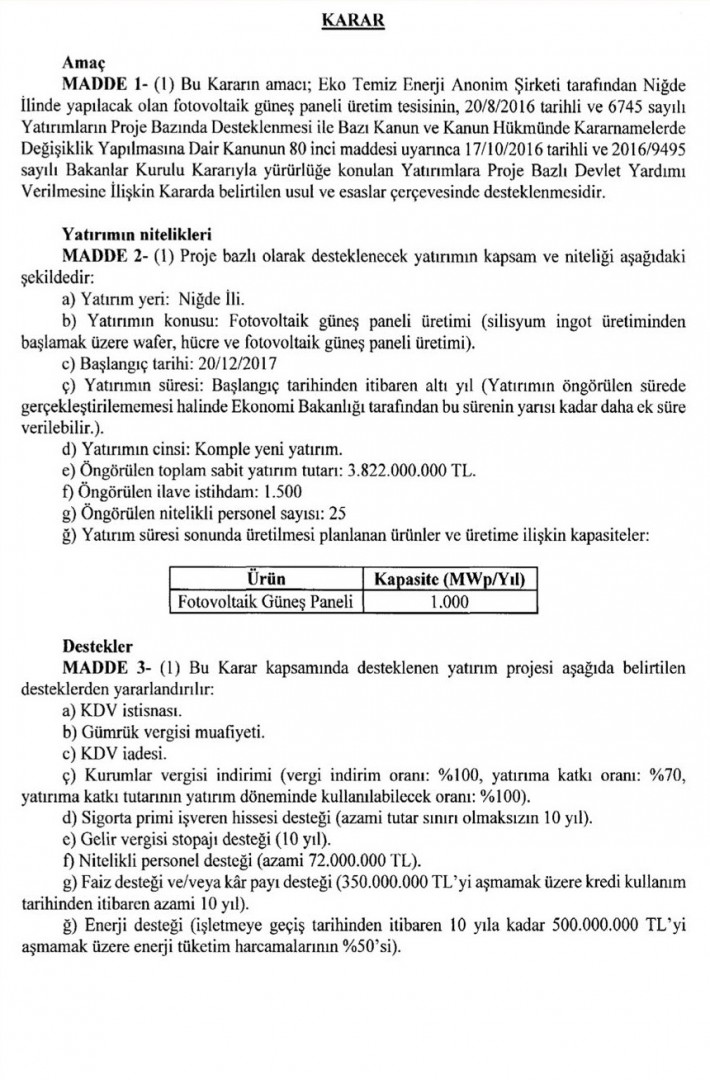
To give you more information regarding our Project Based Initiative, I would like to share the documents circulated and prepared by our certified accountant:
Government Assistance Incentive Scheme for Project Based Investments
(Circular No: MD-TS-2016/12)
In the scope of new regulations made on the 20th of August, 2016, law 6745, which is Supporting of Investments on a Project Basis and Administering Changes in some Laws and Decree Laws, and article 80 of this states that the Council of Ministers may decide on the application of the following supports for the investments which separately or collectively meet the conditions of meeting our country’s current or potential requirements, securing supply, reducing import dependency and ensuring technological transformation, and being innovative, R&D intensive and having high value added and which are decided to be supported by the Ministry of Economy on project basis. Projects seeking support under the new law must be in conformity with the Turkish government’s targets set forth in national development plans and annual programs, and also with those specifically promoted by the Ministry of Economy.
The Council of Ministers Decree No. 2016/9495 on "Grant of Project-Based Government Assistance to Investments" was published in the Official Gazette dated 26 November 2016 and entered into force.
The Decree aims to steer savings into high value added investments, to boost production and employment, to encourage large scale and strategic investments with high R&D content for increased international competitiveness, to increase foreign direct investments, to reduce regional development disparities and to promote investments for clustering and environment protection for the production and export-oriented growth strategy in line with the projected targets in Development Plans and Annual Programs as well as international agreements.
The general purpose of the 2016/9495 regime is to set out procedures and principles for state aids in innovative, R&D-oriented and high added value investments based on the project in accordance with development plans and goals set by annual programs in order to meet critical needs of the country in the present or in the future, to ensure security of supply, to reduce dependence on foreign sources, and to implement technological transformation, all of which are support for project based initiatives.
1) 2016/9495 Law and its approved support areas
- As you can also see in the below table, in addition to the existing incentive system, the new incentives are:
- Qualified personnel support
- Energy supply support
- Infrastructure support-Exemption or procedural relieves for permission, assignment, license, registrations and other restrictive provisions imposed by other laws for project-based investments
and similar supporting factors.
|
Project Based New Incentive System (2016/9495 Law) |
Current Incentive System (2012/3305 Law) |
|
a) Customs duty exemption |
a) Customs duty exemption |
|
b) KDV exemption |
b) KDV exemption |
|
c) VAT refund |
c) VAT refund |
|
ç) Tax reduction or exemption |
tax reduction |
|
d) Support on social security premium employer’s share |
d) Support on social security premium employer’s share |
|
e) Income withholding tax support |
e) Income withholding tax support |
|
f) Qualified personnel support |
|
|
g) Interest or grant support
|
g) interest support |
|
ğ) Investment contribution rate |
ğ) insurance contribution |
|
h) Energy support |
|
|
ı) Public procurement guarantee |
|
|
i) Land allocation |
i) Land allocation |
|
j) Infrastructure support |
|
|
k) Exemption or procedural relieves for permission, nothing assignment, license, registrations and other restrictive provisions imposed by other laws for project-based investments |
|
2) Project Qualities Required to Qualify for Support
In order to qualify for this support, projects require a minimum fixed investment amount of USD 100 million.
upon evaluation, the Ministry of Economy will first evaluate the investment projects by taking into account the criteria set out below:
- Address Turkey’s critical current and prospective needs
- Ensure security of supply for the products of which the production capacity is insufficient in Turkey
- Develop technological capacity in areas where a technological gap exists
- Reduce foreign dependency in areas where foreign trade deficit occurs
- Bring high added value
- Provide production by way of using new technologies
- Foster competitiveness in various sectors
- Accelerate technological change in sectors where the project is involved and provide positive externalities for these sectors
- Are innovative and R&D supportive
- Relate to the production of manufactured goods with high added value in sectors that negatively impact current accounts balance and suffer raw material shortage
- Relate to integrated productions that provide the opportunity to utilise Turkey's raw material potential
and similar supporting factors.
3) Eligibility and application
The Ministry of Economy may convoke one or more companies or make an announcement of the investment topics that are in line with the purposes of the Law. Upon the invitation or announcement of the Ministry of Economy, the investors that wish to benefit from the above-mentioned incentives may apply to the Ministry of Economy, provided they have information and documentation regarding:
- Companies wishing to benefit from the incentive will be able to submit to the Ministry their project information, investment feasibility, impact analysis and requested incentives and reasons, application petition, signature declaration and other documents required to be assessed in accordance with the example provided in Annex-1 of the Decree.
- Application petition signed by person(s) authorised to represent and bind the investor
- Notarised list of authorised signatories pertaining to the persons authorised to represent and bind the investor, and statement of signature for sole proprietorships,
The Ministry of Economy has the discretion to request other information and documents.
As a result of the evaluation, the eligible project or projects will be submitted to the Council of Ministers by the Ministry of Economy. When a project is approved to be supported by the Council of Ministers, an incentive decision will be published.
An investment incentive certificate will be issued for projects that are chosen to be supported by the Council of Ministers.
Investments seen as unsuitable to benefit from the incentives and supports may be taken into further consideration under the Decree on State Aids in Investments for re-consideration if requested by the investor.
4) Investment period and completion visa
The beginning and ending dates of the investment shall be determined in the Decision on Incentive; the investments to be supported must be completed within the time specified in the Decision on Incentive, including extra times.
The completion visa must be issued after the completion of the investment as a result of the expert review to be conducted by the committee that will consist of the personnel of the General Directorate of Incentive Implementation and Foreign Investment of the Ministry of Economy (General Directorate) and the personnel assigned by other relevant ministries depending on the investment subject.
5) Transfer of the investment or shares
The transfer of the investment is subject to the permission of the Council of Ministers and the approval of the Prime Minister within the scope of the duration and conditions determined in the Support Decision.
If approved, the transferee company may benefit from the same benefits and exemptions, provided that it fulfils the investment project's required qualifications and commitments.
Except for cases where the shares are sold on Borsa Istanbul through a public offering, the transfer of the investor company's shares is subject to the permission of the Council of Ministers.
6) Other important incentive items
Factors that are not contained in the new Decree or Decree on State Aids shall be finalised in accordance with provisions of applicable on the 2012/3305 Decree for State Aids in Investments and/or provisions of other applicable legislations.
- For the aids for interest, the bank is responsible for the accuracy of the interest amount to be reported to the Ministry in due dates, and must ensure that the loan is used for the investment. The interest aid is executed in accordance with the protocol in force between the General Directorate of Incentive Implementation and Foreign Capital, Ministry of Economy and the intermediary company and the supplementary protocol to be signed.
- With regard to aids for energy, the amount of invoice paid in cash and issued by the organisation or institution that supplies the energy is considered to calculate the cost of energy except for debts of past periods, delay interest, amount of penalty and VAT.
- For support projects that may use grant promotion with Decree on State Aids, if the investor submits a report issued by a certified public accountant on fixed expenditures for investment under incentive certificate to the Ministry in May and November following the start date of investment in accordance with the time and limits set out in the Decree, such expenditures will be evaluated under the Decree on State Aids and the amount identified for grant promotion will be transferred into the account of investor.
- The aid for wage is provided by considering the number of qualified personnel defined in the Decree on State Aids and the gross wage. This grant promotion may be used from the month following the completion visa. This grant promotion is calculated based on the records of the Social Security Institution.
- If the capital contribution is required, the aid is implemented by the institution described in the Decree on State Aids.
- If the public guarantee of purchase is required, the aid is implemented by the institution or organisation described in the Decree on State Aids.
- For the projects where aids for infrastructure are required, the aid is primarily implemented by the organisation or institution responsible for setting up the infrastructure and described in the Decree on State Aids.
- If it is allowed to make exceptions for permits, licenses, registration, approval and similar matters with regard to the investment described in the Decree on State Aids, the relevant public organisations and institutions are responsible for taking necessary actions.
- For importing machinery and equipment, customs tax exemption and VAT exception are applied by the Ministry of Customs and Trade.
- The aid for VAT exception contained in this Decree, and aids for tax reductions, tax exception, income tax withholding and VAT refund are applied by the Ministry of Finance if such aids are contained in the Decree on State Aids.
- If the Decree on State Aids require aid for employer's national insurance contribution, the aid will be implemented by the Directorate of Social Security Institute.
- Investment land will be allocated in the framework of the procedures and principles to be determined by the Ministry of Finance
- It is stipulated in the Decree that the implementation of the support items foreseen in the incentive certificate by related public authorities and institutions is obligatory, and the Ministry may delegate certain procedures concerning the implementation within the scope of this Decree to other public authorities and institutions within the framework of procedures and principles.
- In case of the violation of the conditions prescribed in this Law or misuse of the incentives and subsidies, in terms of taxes not accrued on proper time, loss of tax shall be considered to be appeared. Subsidies provided other than tax shall be collected according to the provision of the Law on Procedures for Recovery of Public Receivables dated 21/7/1953 and numbered 6183 and by charging default interest.
- Those benefit from the allowances, exemptions, subsidies and incentives in the scope of this Law cannot benefit from these items and cannot apply. Investment expenditures benefiting from the supports under this Decree shall not benefit from the supports of other public authorities and administrations. For investment expenditures that benefit or will benefit from the supports of other public authorities and administrations on the other hand, no application may be filed to the Ministry to benefit from the supports covered by this Decree.

The logo of EkoRe
What will happen from here onwards?
This is my answer to the question “What will happen from here onwards?”:
Once we cover the financial deficit to this project, we will start construction. And for this, I predict will be for the end of the year. Once again, I will give you the good news through here.
Also, I haven’t forgotten all the people who have spent alot of time and effort on this project to date. Once this project is up and running, I will present them with some nice gestures.
Finally, I’d like to underline that with this project, I have two main goals. The first one is to make Turkey energy independent. The second one is to produce a world wide brand from this land. I hope with this life source and with the energy of the sun, we can achieve our goals.
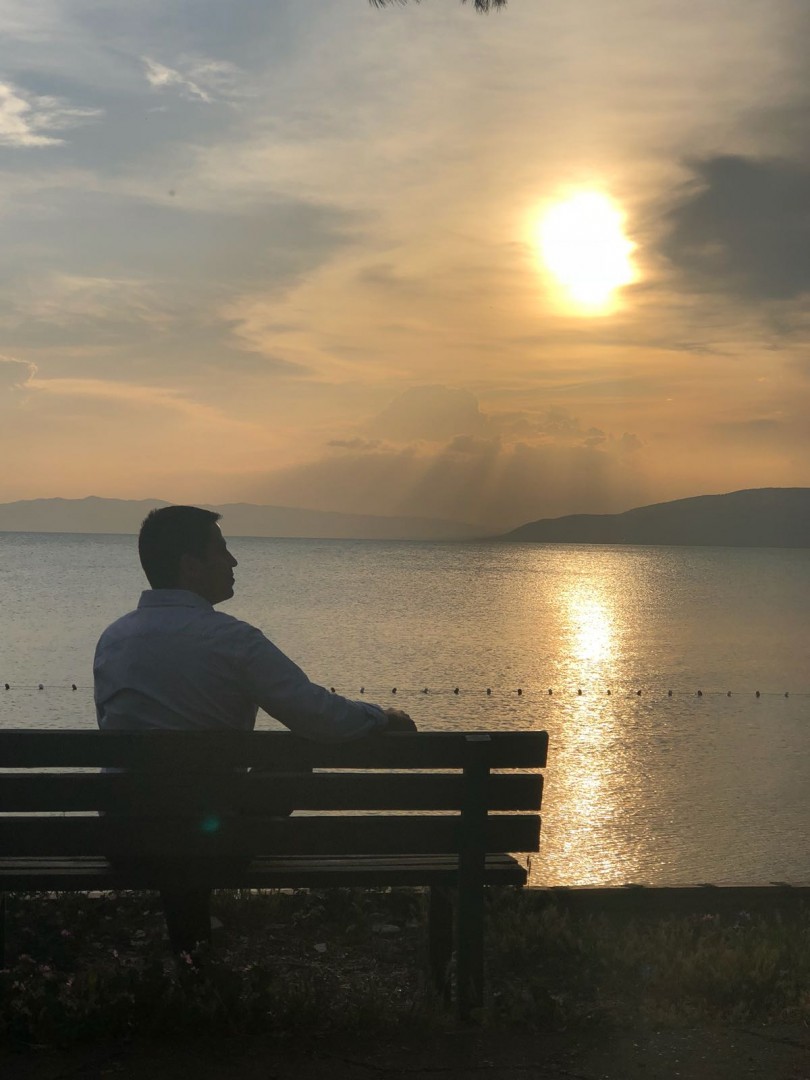
I would like to share this photo as a representation, which was taken by the side of a lake in Turkey. With no photoshop or filter applied, I’d like to bring to your attention the shape of the sun and how natural it is. We only noticed the way it looked and how it reflected on the lake once we took the photo, which was also a nice surprise to us.
Tag: enerji


